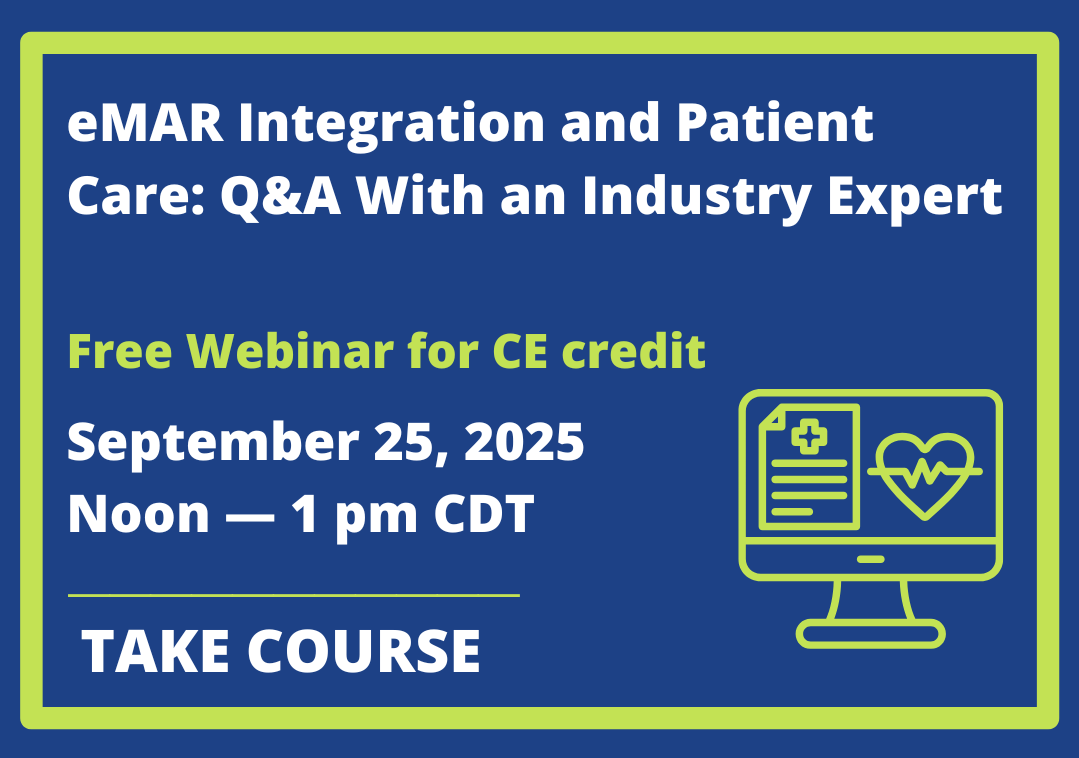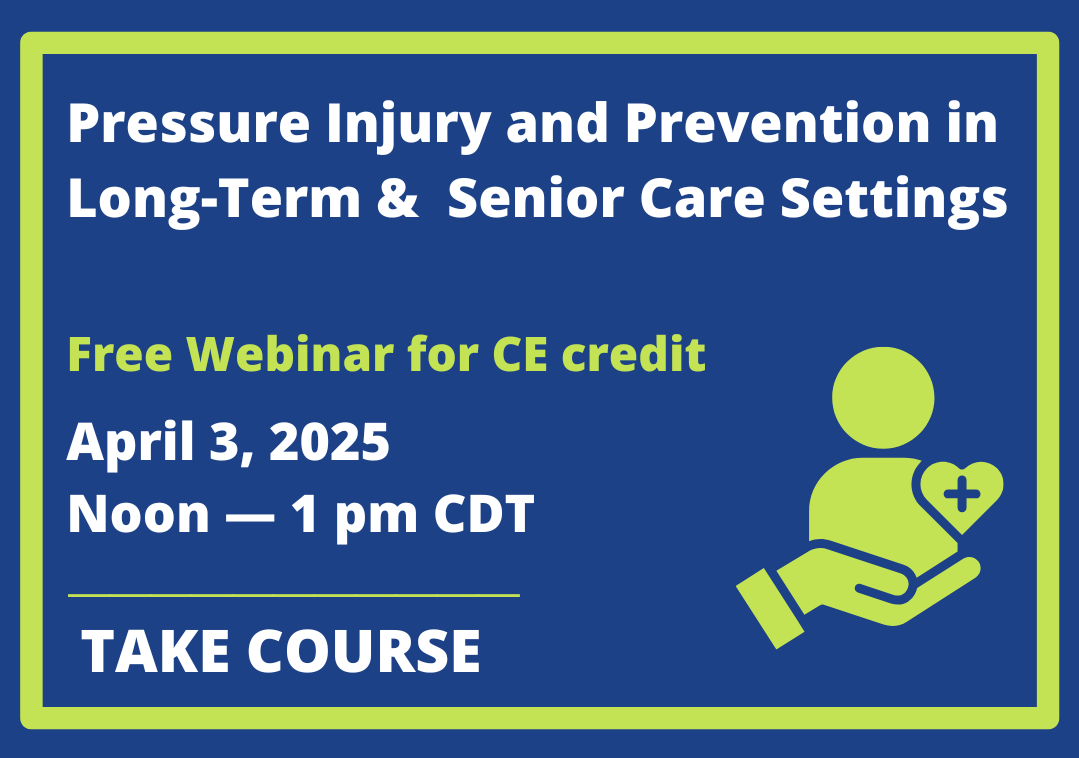ON-DEMAND, SELF-STUDY CE WEBINARS
The Practical Side of Working with the Minimum Data Set (MDS)
DATE: Thursday, December 16, 2021
Noon – 1 p.m. CST
COURSE DESCRIPTION
The Minimum Data Set (MDS) has been a driving force in many areas of the long-term care sector for nearly 30 years. What began as an assessment to facilitate the care plan process has evolved into a tool that is now used for reimbursement as well as for quality measures and survey processes.
Considering their frequency, MDS assessments remain a vital but time-intensive effort to measure the health status of residents in nursing homes. At the core, MDS data are highly complex and require a substantial learning curve to use them.




